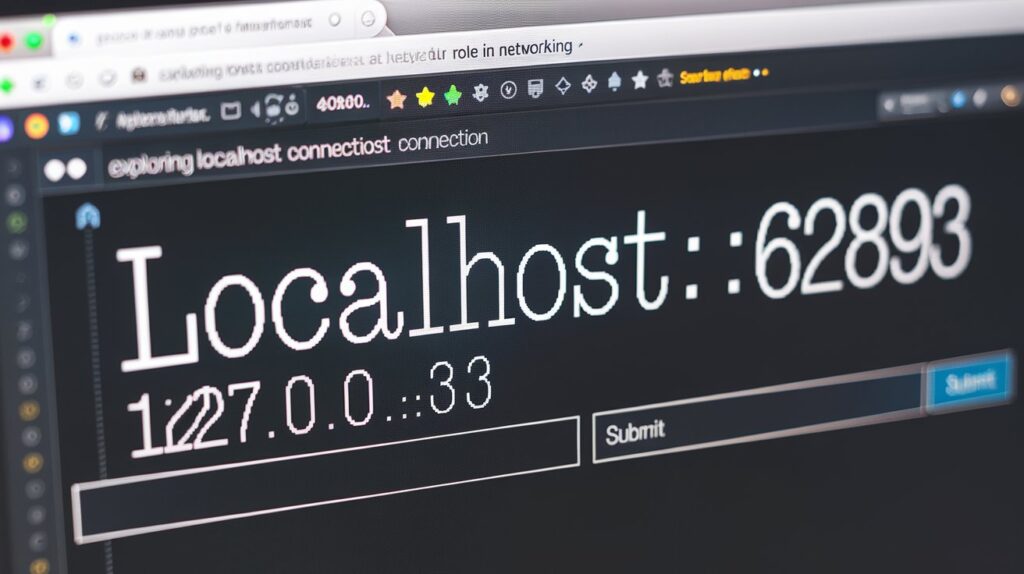The phrase 127.0.0.1:62893 might seem like a string of random numbers and dots to those unfamiliar with networking, but it holds significant importance in the realm of computer science, particularly in web development and network testing. In this article, we will delve deep into what 127.0.0.1:62893 represents, its practical applications, and why understanding it is crucial for developers and IT professionals alike.
What Is 127.0.0.1:62893?
127.0.0.1:62893 is a combination of an IP address and a port number. To break it down:
- 127.0.0.1: This is known as the loopback address. In networking, the loopback address is a special IP address that is used to refer to your computer. It’s the equivalent of saying “this machine” or “localhost.” When a computer sends data to 127.0.0.1, it is communicating with itself. This address is reserved for testing and development purposes and is not used for communication over the Internet.
- 62893: This is the port number associated with the IP address 127.0.0.1. A port is like a virtual door that allows specific applications or services to communicate with each other on a computer. Each service on a machine listens on a specific port, and 62893 is just one of the many ports that various services can use.
The Role of 127.0.0.1:62893 in Web Development
In web development, 127.0.0.1:62893 plays a critical role, especially during the testing and development stages of website or application creation. Developers often need to run web servers on their local machines to test their applications before deploying them to a live environment. By using 127.0.0.1:62893, they can host a web server locally, allowing them to see how the website will function without exposing it to the Internet.

For instance, when a developer writes a new piece of code, they might want to see how it interacts with the rest of the application. By running the application on 127.0.0.1:62893, they can test its functionality in a safe and controlled environment. This ensures that any bugs or issues can be resolved before the application goes live.
Network Testing and Troubleshooting with 127.0.0.1:62893
Beyond web development, 127.0.0.1:62893 is also used in network testing and troubleshooting. Since 127.0.0.1 is a loopback address, it’s often used to verify that the network stack (the collection of network protocol layers) is functioning correctly. By sending data to 127.0.0.1:62893, you can ensure that the local machine is able to process network requests and that the relevant services are running as expected.
Also Read: Your Topics | Multiple Stories: A Deep Dive
This is particularly useful when diagnosing network issues. If an application is not functioning correctly, testing it on 127.0.0.1:62893 can help determine whether the problem lies with the application itself or with the network configuration.
Remote Access and 127.0.0.1:62893
While 127.0.0.1:62893 is primarily used for local testing, it can also be involved in remote access scenarios. Some applications are designed to use the loopback address to connect different parts of the same computer or even to establish connections within a local network. This can be particularly useful for running services that need to communicate with each other without exposing the communication to the broader Internet.
For example, a database server running on your computer might use 127.0.0.1:62893 to connect to a web server on the same machine. This setup ensures that the data exchange between the two services remains local, secure, and isolated from external networks.
Understanding Port 62893 in the Context of 127.0.0.1
The port number 62893 is significant because it determines which specific service on your computer is being accessed. In the context of 127.0.0.1:62893, port 62893 is assigned to a particular application or service running on your machine. The exact service using this port can vary depending on the system configuration and the installed software.
To identify the service associated with 62893, you can check the system logs or use network monitoring tools to see which application is listening on this port. This information can be vital when troubleshooting issues or ensuring that your applications are configured correctly.
The Security Implications of 127.0.0.1:62893
While 127.0.0.1:62893 is primarily used for local connections, it’s important to understand the security implications of using local host addresses and ports. Since 127.0.0.1 only allows communication within the local machine, it’s generally considered secure from external attacks. However, if the local machine is compromised, services running on 127.0.0.1:62893 could be vulnerable.
Therefore, it’s crucial to ensure that your local machine is secure, with up-to-date antivirus software and a properly configured firewall. Additionally, be cautious when running services on 127.0.0.1:62893 that may expose sensitive data, even if they are not accessible from outside the local machine.
Practical Examples of 127.0.0.1:62893 Usage
Let’s consider a few practical scenarios where 127.0.0.1:62893 might be used:
- Developing a Web Application: A developer is building a new web application and needs to test it before deploying it to a public server. By running the web server on 127.0.0.1:62893, the developer can view the application in a web browser, make changes, and debug issues, all without exposing the app to the Internet.
- Testing a Database Connection: Suppose you have a database server running on your local machine. You might configure it to listen on 127.0.0.1:62893 so that other services on the same machine can connect to it securely. This setup ensures that the database is not exposed to the Internet, reducing the risk of unauthorized access.
- Troubleshooting a Network Issue: If you’re experiencing issues with an application that relies on network communication, testing it on 127.0.0.1:62893 can help determine whether the problem is with the application itself or with the broader network. By isolating the issue to the local machine, you can more easily identify and resolve the problem.
Conclusion
In summary, 127.0.0.1:62893 is much more than a random collection of numbers and dots. It represents a powerful tool in the world of web development, network testing, and troubleshooting. By understanding how 127.0.0.1:62893 works, you can leverage this local connection to develop and test applications, diagnose network issues, and ensure that your systems are running smoothly and securely.
The next time you see 127.0.0.1:62893, you’ll know that it’s not just an IP address and port number—it’s a gateway to better understanding and control of your local machine and the services running on it.


















